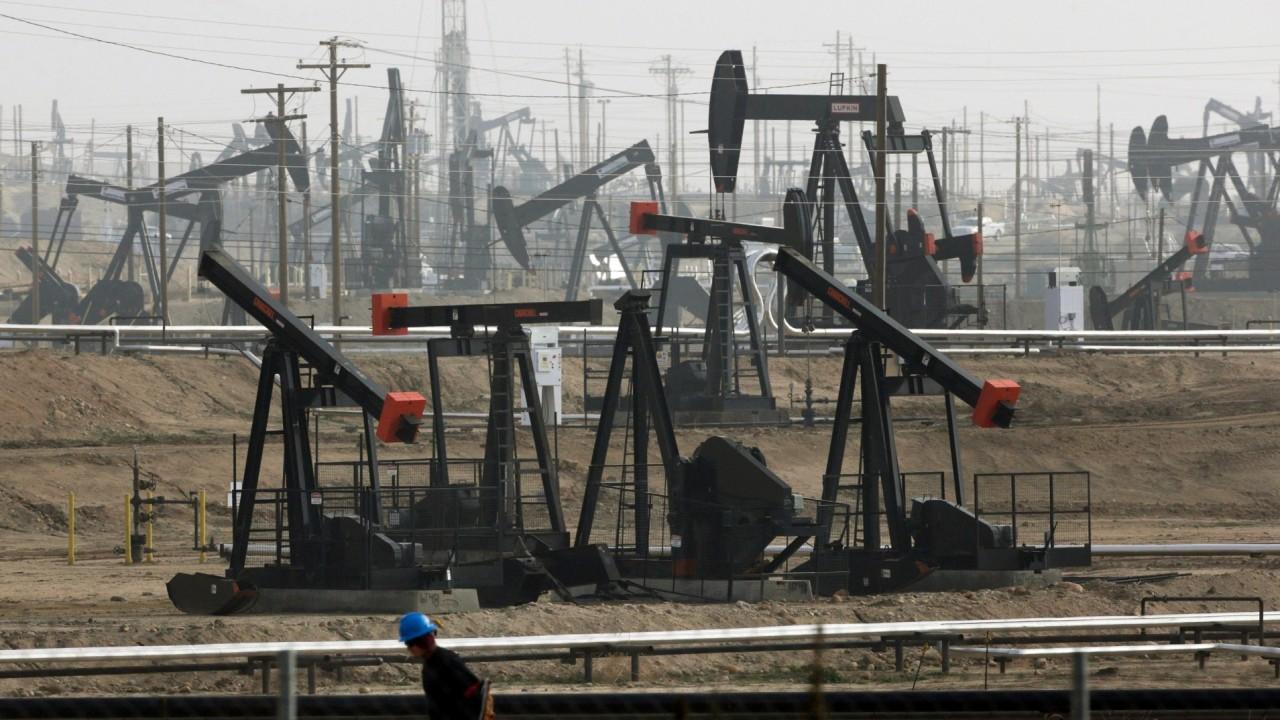Coronavirus worries send oil into bear market
Crude's collapse into a bear market is among the fastest in recent years
Oil prices tumbled into bear market territory Monday as the spreading of the coronavirus cast a dark spell over global demand.
The move was the second-fastest plunge from recent highs over the past seven years, according to Dow Jones Market Data Group.
Brent crude oil, the international benchmark, fell 3.8 percent to $54.45 a barrel while West Texas Intermediate crude oil, the U.S. benchmark, slid 2.8 percent to $50.11 a barrel. Both energy components finished down more than 20 percent from their Jan. 6 peaks, officially placing them in bear-market territory.
AS CORONAVIRUS RAGES, OIL COLLAPSES AND OPEC HITS PANIC BUTTON
“Our strategists suggest oil markets appear to be pricing in a demand shock equivalent to that seen during the SARS outbreak in 2003,” wrote John Normand, head of cross-asset fundamental strategy at J.P. Morgan Chase & Co. “They suggest global oil demand growth could be trimmed by 300 kbd in 1Q20 and halved to 500 kbd in 2Q20 versus their current forecasts.”
Brent crude oil fell by as much as 31.4 percent after the World Health Organization issued a global alert regarding SARS on March 12, 2003, according to Dow Jones Market Data. West Texas Intermediate crude oil lost as much as 33.3 percent in the wake of the SARS outbreak.
Last week, the U.S. declared coronavirus a public health emergency, following the stance from the WHO issued earlier.
Economists at Bank of America Securities say it’s “too early to evaluate the economic impact of the outbreak,” but caution that global growth could fall below 3 percent if “contagion is worse than expected.” The bank’s global research team currently has its 2020 global growth forecast at 3.1 percent.
FOR OIL CORONAVIRUS IS GROUND ZERO
There is already some evidence the virus’s outbreak is weighing on global growth. Last week, U.S. crude oil inventories posted a larger than expected build of 3.5 million barrels, according to the Energy Information Administration. Wall Street analysts surveyed by Refinitiv were anticipating inventories to increase by 300,000 barrels.
The possibility of the coronavirus, which has now sickened more than 17,000 people and killed 362, having a prolonged impact on the global economy has set off alarm bells among OPEC and its allies. Both Saudi Arabia and Russia have expressed interest in moving the March meeting up to February.
“We have discussed it with the Saudi (energy) minister several times already ... Yesterday, we spoke for an hour, today, for half an hour,” said Russian oil minister Alexander Novak, according to Interfax. “We are discussing it very seriously."
The OPEC+ group is considering deepening the cuts it made in December by another 500,000 barrels per day, according to Reuters. The group has removed a total of 1.7 million bpd since Jan. 2017.
CLICK HERE TO READ MORE ON FOX BUSINESS
While acknowledging that OPEC and its allies might "reassert some control on supply if prices stay under pressure," Mark Haefele, chief investment officer at UBS Global Wealth Management, says investors willing to take some risk "may consider selling the downside in Brent from USD 50/bbl" with a six-month timeframe.





















